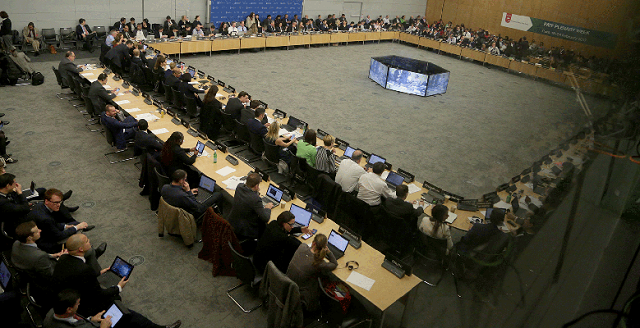Finance minister to defend Pakistan as FATF weighs placement on blacklist
Decision to be taken after six-day meeting

PHOTO: FATF
Currently placed on the 'grey list', Pakistan faces the prospect of being placed on the blacklist which would have the country included in the international sanctions list. In February, the country narrowly escaped placement, but a senior official of the FATF confirmed that Pakistan will be placed on the watch-list coming June.
The delegation, including officials from the Federal Investigation Agency (FIA), State Bank of Pakistan (SBP), finance ministry and the Financial Monitoring Unit (FMU), will inform the anti-money laundering and terror financing watchdog of the action plan drafted to avoid sanctions.
Pakistan to go on FATF terror financing list in June
Amid increasing global pressure to move decisively against proscribed organisations, Pakistan reviewed its new draft action plan for submission to global bodies working on curbing money laundering and terror financing.
The action plan was reviewed just two days before the filing of comments to the observations raised by the Asia Pacific Group (APG) on money laundering.
The APG and the Financial Action Task Force’s (FATF) recommendations to curb money laundering and terror-financing were first discussed in a federal cabinet meeting. The proposed action plan was then reviewed in a meeting chaired by Dr Akhtar.
The FATF decided, in February, to place Pakistan back on its terror financing watch-list of countries that financially aid terrorism with effect from June but Islamabad believed the decision was politically motivated that may affect its future cooperation.
Despite initially agreeing to Pakistan’s viewpoint, the FATF Plenary decided to place the country on the grey list from June, confirmed a senior government official who had attended FATF meetings in Paris, France. Pakistan was previously on the grey list from 2012 to 2015.
The federal government does not see any major impact of the FATF’s decision on its economy and the country’s then-de facto finance minister said that during 2012 to 2015 period, Pakistan signed agreements with the International Monetary Fund (IMF) and issued sovereign bonds in international capital markets.
Pakistan’s financial system was strong and its anti-money laundering and counter-terrorism financing regimes were among the most stringent in the world, said Dr Miftah Ismail earlier.
The decision is seen as being against the norms of the FATF and its sister organisations, as the country’s Mutual Evaluation – a process of assessing levels of implementation of FATF recommendations, was currently undergoing.
Sources claim Pakistan back on FATF watch-list, govt says no ‘official intimation’ yet
The Mutual Evaluations also provide an in-depth description and analysis of each country’s system for preventing criminal abuse of the financial system.
The decision to place a member country on the FATF list is usually taken in light of the Mutual Evaluation, so FATF’s latest move suggests that Pakistan was falling victim to international politics, government officials said while requesting anonymity.



















COMMENTS
Comments are moderated and generally will be posted if they are on-topic and not abusive.
For more information, please see our Comments FAQ